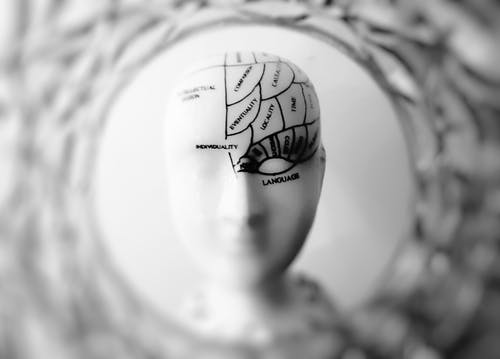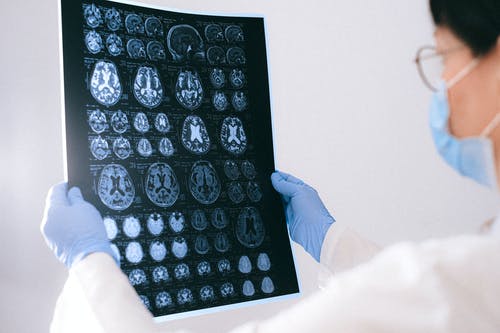The effects starvation and malnutrition have on the human body are profound, far reaching and given enough time irreversible and ultimately fatal.
It’s interesting that when I lived with anorexia nervosa, I knew all that.
To be honest I probably knew it better than I know it now and yet that knowing didn’t come close to translating into the ability to choose any other way of treating my body. If you’ve found yourself in the situation of knowing that what you’re doing is harmful, perhaps having some scared moments where you promise yourself tomorrow will be different but then tomorrow comes and it’s not different and for the most part you simply feel a disconnect between yourself, your body and your long-term health then find good help. Now. It doesn’t have to be that way. I know it feels as though that’s just how it is for you and you’re different but I promise it’s not and you’re not.
Ok, getting help aside in this blog we’re going to explore the effects chronic starvation have on the human brain because while I don’t believe intellectual knowledge alone will allow you to fully recover from anorexia nervosa (or any other eating disorder) I do believe it is place and its power.
In any case I certainly wish someone had taken the time to explain a few things about the effects of starvation to me so that I could have understood a big chunk of my inabilities and struggles were due to my starved mind and body versus something inherently and irreversibly wrong with me.
First thing to know: chronic starvation leads to neurochemical, metabolic, and structural brain changes in people with anorexia nervosa1,2.
What does this mean? Well, it means quite a lot and in this blog we’re going to take a look at the sciency side of 3 very important brain changes that go hand in hand with starvation.
Alongside the sciency explanation I’m going to give you some personal insight into the experience of living that sciency term in my day-to-day life with anorexia nervosa (long before I knew there was words for what I was experiencing, that it was an illness, that I wasn’t broken or alone in my struggles and that it was something I would one day be free from). Beginning with…
- Cognitive Inflexibility

Rigidity in both thinking and behaviours are well known characteristics of people living with anorexia nervosa.
This cognitive inflexibility can be seen as one of the reasons why people living with anorexia nervosa are often deemed “ambivalent” or even “resistant” to treatment and their own recovery.
The truth is they simply lack the cognitive flexibility to fully imagine multiple perspectives or choices (black and white thinking is common). The ability to switch from one thought or task to another is difficult making the doing of new behaviours, which ultimately is the whole premise of recovery, virtually impossible.
Tales from Real Life
I used to want to plan all my meals and know exactly when I was having them well ahead of time. It caused me a lot of distress to consider going out and being presented with food without prior planning or someone else plating up my food.
Knowing what I know now about eating disorders, and the workings of the human body and mind in general, this makes sense.
If you are for a moment to take the perspective of a starved and malnourished body the fact is it is using all its resources and energy simply to stay alive and anything unexpected is a threat. It requires more energy and effort to respond to an unknown situation than it does a known one.
When I was sick, I had this ongoing desire for things to go to plan and to be “perfect.” I honestly had this sense I couldn’t have put words to at the time but in retrospect I can now describe as feeling something akin to “only if things went to plan would it be ok.”
I was always chasing and striving for the one “perfect” day and the thing was it didn’t matter how “perfect” a day was or how many “perfect” days I had it was never enough and the bar for perfection was ever changing. The sense of general unease was never satiated. I continued to chase it, but it was never satisfied.
I remember laying in bed in the morning before my boyfriend would wake up and planning each and every meal for us for the day down to the microdetail as though this was the most important thing I could be doing in the whole world.
2. Poor Central Coherence3-5

Weak central coherence is best described as paying attention to detail at the expense of the big picture.
Poor central coherence negatively impacts your ability to consider long term goals such as a future beyond the eating disorder.
Tales from Real Life
I cannot express how true the experience of “poor central coherence” was for me when I lived with anorexia nervosa.
Of course, at the time I didn’t know it was a “thing” or that there was a term to describe what I was experiencing. I thought it was just the way I was.
It wasn’t until I was 27 years old that I fully learned it could be any other way.
It wasn’t until I was 27 years old that I began to develop the capability to think about the future in any meaningful sense. Prior to this it had felt make believe or not real when I’d thought about my future.
To put it kindly this meant my long-term planning was poor.
My in the moment planning was impeccable but long term, especially when it came to planning for health and happiness and putting in place behaviours now that would support this into the future, that was impossible.
I bounced around from one thing to another, helping everyone and anyone to reach their dreams and goals while fully and often unintentionally neglecting myself.
That was my life and I simply didn’t know it could be any other way. I do now.
3. Obsessive Thoughts and Rituals

Many people living with eating disorders have rituals and “rules” around eating (and other things in day to day life).
Some of the most common ones include cutting food into small pieces, eating slowly, finishing eating last, making sure you don’t eat more than anyone else, exercising before or after eating and so on.
Obsessive thought patterns are also common and can include overanalysing and replaying conversations, foods eaten and scenarios long after they’ve passed.
Tales from Real Life
I remember not knowing I had rules because I did them by default.
They weren’t rules they were just the way it was.
They weren’t rules they were gospel.
One of the main ones I remember was that I used to have to get everything done and only then could I allow myself to eat (and this is a common experience of my clients today).
I would come home from school and do my homework, clean, take a shower and only when there was absolutely nothing left to do could I have something to eat.
I used to not be able to eat at night after 7pm. That was it. If by 7pm I had or hasn’t eaten it didn’t matter I wasn’t going to eat anything more. The amount of times I went to bed hungry as though that was a perfectly normal thing to do is in hindsight heartbreaking.
There’s many, many more rules and rituals I carried out on a daily basis than these examples. Enough to write a full blog on in itself but you get the idea. It’s not until you are free of all these rules that seem so meaningful at the time that you realise how much time they took up, how constricting and restricting of life they were and how arbitrarily bizarre and pointless it all was.
Summary

In what can often seemingly feel a weight, shape and size obsessed society you’d be forgiven for believing that eating as little as possible is a noble and health promoting endeavour worth pursuing however, the reality is starvation and malnutrition are about the most stressful experiences a human body can go through. And this makes complete sense given that they are literally incompatible with life.
In this blog we’ve looked at 3 important and profound effects chronic starvation has on cognition.
- Inflexibility
- Over Attention to Detail and Lack of Comprehension of the “Big Picture”
- Obsessive Behaviours and Thoughts
If you or someone you care about is living with anorexia nervosa or any type of eating disorder diagnosed or undiagnosed, I hope the information within this post helps you to begin to understand it’s not personal.
It’s never been personal.
This is a brain on starvation.
For me it seems surreal reading these sciency words that put an explanation to things which were my reality, my every day life, my norm during the years I lived with anorexia nervosa.
I want you to know outright that it doesn’t have to be this way and that full recovery is always a possibility. Not an inevitability but a possibility.
When will you consider surrendering, experiencing and experimenting with just how many other ways it could be?…
With my whole heart I hope you found this information useful and inspiring.

Become Great. Live Great.
Bonnie.
Reference
- Sidiropoulos M (2007) Anorexia nervosa: The physiological consequences of starvation and the need for primary prevention efforts. McGill J Med 10: 20–25.
- Mühlau M, Gaser C, Ilg R, Conrad B, Leibl C, et al. (2007) Gray matter decrease of the anterior cingulate cortex in anorexia nervosa. Am J Psychiatry 164: 1850–1857.
- Roberts M, Tchanturia K, Treasure J (2013) Is attention to detail a similarly strong candidate endophenotype for anorexia nervosa and bulimia nervosa? World J Biol Psychiatry 14: 452–463.
- Lopez C, Tchanturia K, Stahl D, Treasure J (2008) Central coherence in eating disorders: A systematic review. Psychol Med 38: 1393–1404.
- Lopez C, Tchanturia K, Stahl D, Booth R, Holliday J, et al. (2008) An examination of the concept of central coherence in women with anorexia nervosa. Int J Eat Disord 41: 141–152.



